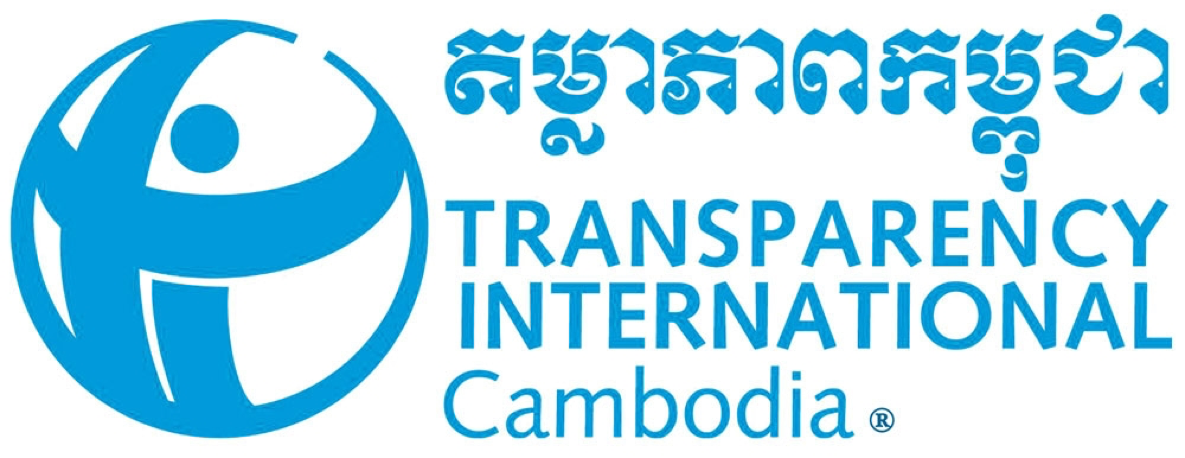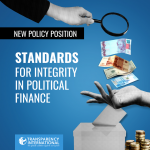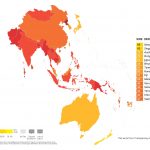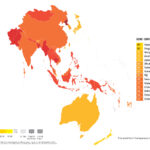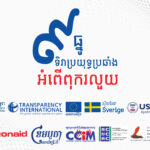Preliminary Statement on Cambodia’s 2017 Commune Elections
Phnom Penh, 5 June 2017
Preliminary Statement on Cambodia’s
2017 Commune Elections
Summary
On 4 June 2017, TI Cambodia deployed 1,051 trained and accredited non-partisan election observers to observe the 2017 commune/sangkat council elections. This included 35 supervisors; 822 observers deployed to a random, representative sample of 411 sample polling stations in all 25 provinces to carry out a sample-based observation (SBO); and 200 observers at all 100 of the polling stations in three communes in Phnom Penh, Svay Rieng and Siem Reap provinces. SBO is an advanced election observation methodology, used worldwide, that draws on proven statistics to allow election observers to present an accurate and comprehensive assessment of the election day process.
Since 2002, regular commune/sangkat council elections have become a critical part of Cambodian democracy. The elections ensure the people of Cambodia can exercise their right to choose their local leadership. The integrity of this choice, however, depends both on the integrity of the electoral process and its overall political context.
Based on the findings of TI-Cambodia’s observation, election day for the 2017 commune/sangkat council elections was administered in a peaceful, efficient and transparent manner. Polling procedures were followed overall, with minimal irregularities, allowing voters to cast their ballots with little interference. However, the pre-election period, including increased legislative pressures on civil society and political parties and the threatening rhetoric may have impacted the electoral environment to some extent.
Pre-Election Context
The period following the 2013 National Elections was marked by increased legislative pressures on civil society and political parties, and a heightened climate of fear leading up to the 2017 Commune Elections. These measures have in many ways served to curb the activity of civil society and opposition parties.
In 2015, the Law on Associations and Non-Governmental Organizations (LANGO) came into effect, which regulated the operations of NGOs and international associations, including mandatory registration for international associations and NGOs and broad discretionary powers for registration approval. In 2017, the 1997 Law on Political Parties was amended to grant broad discretionary powers to state authorities to suspend and dissolve the activities of political parties, which is widely viewed to have violated the spirit of the Constitution or the laws of Cambodia. The Amendments also barred individuals convicted of felonies or misdemeanors without suspension from holding political party leadership positions. The Amendments were passed after a series of convictions of opposition leaders. Combined, LANGO and the Amendments to the Law on Political Parties, have been denounced by civil society and the international community for the potential negative impact on democratic processes and freedoms.
The 2016 Voter Registration process began on 1 September 2016 and ended on 30 November 2016, after a one-day extension. Ultimately, 7.87 million people out of 9.6 million total eligible voters were registered in the three-month period, thus covering 81.47% of the voting population. Requests for further extensions to register the remaining eligible voters were denied by the National Election Commission (NEC) on technical grounds. A new, modernized system for voter registration was rolled out to reduce eventual fraud, limit name duplication and eliminate missing names for registered voters. The system was largely viewed as a successful and capable tool for accurate voter registration, according to The Committee for Free and Fair Elections in Cambodia (COMFREL).
Political parties used the legal gap period between the official announcement of candidate lists and the official start of the campaign period, to conduct campaign-like activities whose regulation seems to fall outside the mandate of the NEC. Just prior to the commencement of the official campaign period, pressure increased on the opposition after their slogan was deemed as provocative and inciting and their leadership considered illegitimate after the party failed to follow proper procedures in electing their leaders under their internal bylaws, as required under the Law on Political Parties. While the rhetoric regarding the party slogan was directly focused on the opposition party, it also had lingering repercussions for freedom of expression.
The official campaign period began on 20 May 2017 with the two main parties campaigning throughout the country, while other parties campaigned in their particular communes. The rhetoric of civil war if the ruling party were to lose power or if the results of the election were protested persisted. The National Election Committee issued a series of codes of conducts for different stakeholders mainly the military, calling them to remain neutral. Overall, the election period was largely peaceful without any major incidents. However, the restrictions created by changes to the legal framework alongside the climate of fear were not conducive to creating a fully free and fair electoral environment.
Preliminary Election Day Findings
With 100% of TI Cambodia’s sample-based observers now reporting, TI Cambodia has summarized the preliminary findings below.
Set-up and Opening
TI Cambodia reported on the set-up and opening of the polling stations during election day morning. Key findings are presented below.
- 88% of polling stations opened on time.
- 95% of polling stations had 6 Polling Station Committee members present.
- 98% had all critical materials present at the time of the polling station opening.
- 59% of polling stations were not accessible to people with wheelchairs.
Voting
TI Cambodia reported on the voting process of the polling stations on election day evening. Key findings are presented below.
- 99% of polling stations did not experience cases of physical violence, intimidation, pressure, or harassment.
- 25% of polling stations had unauthorized individuals present. The most common individuals present were village chiefs (14%), candidates (11%), and police (7%).
- In 97% of polling stations, polling officials marked voters’ fingers with indelible ink after voting. In 3% of polling stations, officials marked voters’ fingers with indelible ink most of the time.
- In 97% of polling stations, ballot papers were always stamped before handing them to voters. In 3% of polling stations, ballot papers were stamped most of the time before handing them to voters.
Closing and Counting
- During the counting process, 100% of polling stations had political party agents present. Among polling stations where party agents were present, 96% of polling stations had CPP officials present, while 95% of polling stations had CNRP officials present, and 44% of polling stations had other political party agents present.
- 8% of polling stations had unauthorized officials present during the counting process. The most common type of unauthorized officials were village chiefs with 5%.
- In 99% of polling stations, ballots were sorted and counted in full view of the party agents and observers.
- In 94% of polling stations where CPP party agents were present, they received the election results (form 1102). At 93% of polling stations where CNRP party agents were present, they received form 1102.
- At nearly 100% of polling stations, there were no unresolved complaints during the counting process.
Conclusions
The administration of election day has significantly improved since the 2013 elections thanks to the electoral reform efforts of the NEC and relevant stakeholders. These improvements include the quality of voter registration leading to an improved voters list, the registration of party candidates and increased cooperation and openness of the NEC with civil society and the public. However, increased legislative pressures on civil society and political parties and the threatening rhetoric may have impacted the electoral environment to some extent.
TI Cambodia calls upon the NEC to promote transparency in the post electoral process and to adjudicate any electoral complaints in an impartial manner. TI Cambodia will continue to follow post-election processes and will issue an assessment and recommendations in a final report.
download Preliminary Statement on Cambodia’s 2017 Commune Elections
This post is also available in: Khmer
 English
English ភាសាខ្មែរ
ភាសាខ្មែរ